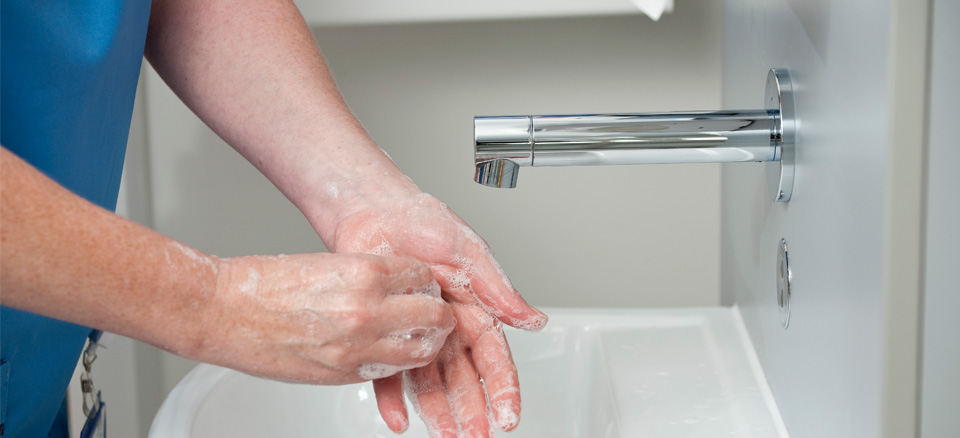The Evening Times ran an article about figures in a new report showing that women from Lanarkshire experience higher-than-average rates of stillbirth and neonatal deaths than other parts of Scotland. The region recorded the second-highest rate in Scotland with 6.42 deaths per 1,000 births. However it is worth noting that the figure of 7,096 Lanarkshire resident […]
Staff being reminded of the Hand Hygiene Zero Tolerance Policy

Staff are being reminded of the Hand Hygiene Zero Tolerance Policy.
The policy, updated earlier this year, is designed to protect patients, visitors and staff from infection and enable them to adhere to the World Health Organisation’s (WHO) 5 Moments for Hand Hygiene.
Head of infection prevention and control (IPC) Emer Shepherd said: “Hand hygiene is recognised internationally as being the single most important indicator of safety and quality of care in healthcare settings because there is substantial evidence to demonstrate the correlation between good hand hygiene practices and low healthcare associated infection rates.
“The aim of this policy is to ensure that all members of clinical and non-clinical staff – directly employed and contracted – understand the importance of performing hand hygiene and are clear on their responsibilities in complying with it.”
Staff should always remember to clean their hands:
- before touching a patient
- before clean/aseptic procedures
- after body fluid exposure/risk
- after touching a patient, and
- after touching patient surroundings.
Staff should also remember to be bare below the elbow in all clinical areas which means:
- No long sleeves except when attending patients with certain infections or maintenance and estates staff wearing personal protective equipment as part of their duties
- No ties
- No jewellery
- Wristwatches must be removed
- No nail polish
- Nails trimmed and no longer than finger-tip length
Hand Hygiene compliance is monitored by the IPC team across all wards and departments.
All grades of staff should expect to be observed during activities in clinical areas and be receptive to feedback from the auditor.
Issues with poor practice are addressed at the time of any audit and supportive improvement measures are offered by the IPC team to individuals or groups as appropriate.
For more IPC visit the recently updated IPC section on FirstPort at: http://firstport2/staff-support/infection-prevention-control/default.aspx
To view the WHO 5 Key moments of hand washing, visit: http://who.int/gpsc/5may/background/5moments/en/


Comments are closed.